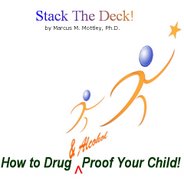Nurturing Our Children’s Talents
By Marcus M. Mottley, Ph.D.
I am sitting here at the car dealership having my car serviced. Of course, I am expecting not ‘sticker shock’ but ‘bill shock’!
It is
First there was LL Cool J who has teamed up with Subway Restaurant to promote their new ‘healthy meals’ message. Amazingly, he gave away a bicycle to a member of the outside audience!
Then the host of the show introduces a young, petite girl who can’t be older than twelve. Her name is Madeline Edwards of
Oh well… boring… I yawn, take my eyes off the TV and continue thumbing through and scanning the sports pages of the Washington Post.
And then she begins to sing! For the next three minutes I am mesmerized and transfixed!
First, that is not her voice… Nope! Impossible! That voice could not be coming from that tiny, petite, small… figure. This is not the voice of a twelve year old. It is not the voice of an eighteen year old!
This is the voice of a seasoned adult classical singing superstar. Absolutely… This is the equivalent of Pavarotti, Ella Fitzgerald, Michael Jordan and Tiger Woods all rolled into this small girl.
Everything is there… tone, control of vocal variety, pitch control, presence and poise, delivery… If she is this good now… how much better can she get?
Wow… Wow!
Her proud parents were standing on the side just as mesmerized as everyone else… on the set and off the set… and out of the set!
Folks I can tell you this. That young girl is going to be busy for the next few years…practicing and perfecting her art. She will not be involved in negative, anti-social activities. She is already busy… fine tuning her voice… not that I could tell that it needed to be fine tuned…
Are her parents lucky? I don’t know how much effort they have had to put in to help her ‘find her voice’! I don’t know how much time and effort they have put in taking her back and forth to music practice. I don’t know how much money they have put into paying for her lessons.
What I do know is that having found out what she loves to do and what she is good at doing… they are fully committed to helping her getting better. As a parent myself, I know that I try to do everything I can to help my sons find their natural talents – to find that one or two or three things for which they may have that extra inclination or special love for.
And, that is hard to find. Although her parents are lucky… I am sure that it is not easy for them.
For the rest of us, our children may never be the Louis Armstrong, Maya Angelou or Martina Navratilova at soccer, poetry writing or Mathematics. But it is in helping them search for and find the things they love and things in which they have special interest or inclinations where the real journey to success is. Though this journey is hard… it is the journey where they are most likely to find themselves.
And most importantly, while they are on the journey to finding themselves… they are going to be busy… very busy. They will not have much time to get involved in antisocial activities. Their exposure to negative peer pressure… though still present… will be lessened by their focus on positive things and by being surrounded by positive and supportive people.
Madeline Edwards’ parents have helped her to find her voice… literally.
Our job as parents is just that: Take our children on a journey of finding their talents and keeping them busy while doing that. This is one of the secrets of successful parents and successful young adults and teenagers that I reveal in my Book on CD (also downloadable as an E-book). You may get it at www.Prevent-Drug-Abuse.com
By the way… it was obvious that Madeline was extremely excited and having a lot of fun while she mesmerized her TV audience.

